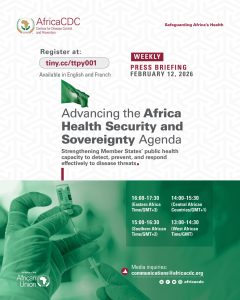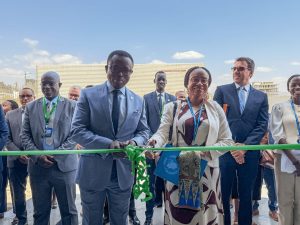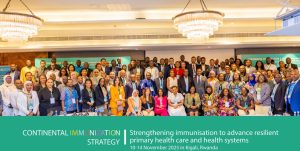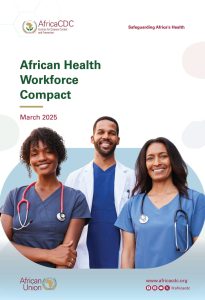New York, 23 September 2025 – Africa’s health agency has called for urgent action on sickle cell disease, warning that most of the 300,000 babies born with the condition each year on the continent die before their fifth birthday, despite cheap and effective treatments.
“Sickle cell disease has silently devastated families across Africa for generations,” said H.E. Dr. Jean Kaseya, Director-General of Africa CDC. “Every hour, 45 children are born with sickle cell disease in Africa, and most will not celebrate their fifth birthday because of limited access to early diagnosis, treatment, and support systems. This must change. Through our initiative A New Day for Children with Sickle Cell Disease, we are determined to integrate SCD into primary health care, strengthen prevention and early detection, expand access to affordable medicines, and give every child the chance to live a full and productive life.”
Sickle cell disease is the world’s most common inherited blood disorder, concentrated in sub-Saharan Africa. Survivors often face lifelong pain, disability, and economic hardship, while the disease imposes a heavy toll on families and health systems. Yet interventions such as newborn screening, immunisation, antibiotic prophylaxis, malaria prevention, and hydroxyurea therapy are proven to save lives.
“These interventions are feasible; they can be delivered using the existing systems in Africa, and we can afford them. What we need is leadership, support from partners to get started, and commitment by all stakeholders to implement them to save our children and our continent from this burden,” – Dr. Joseph Lubega, Director for Texas Children’s Global HOPE.
Africa CDC said its new initiative will build on its Non-Communicable Diseases, Injuries, and Mental Health Promotion Strategy (2022–2026), which aims to strengthen policies, improve financing, and expand access to essential technologies and medicines across the continent. It also advances earlier African Union commitments, including a 2005 World Health Assembly decision recognising sickle cell disease as a public health priority.
In 2025, Africa CDC signed a Memorandum of Understanding with Texas Children’s Global to expand child primary health care services, improve access to diagnostics, medicines, and vaccines, and train health workers to better respond to childhood diseases.
Participants at the New York event stressed the importance of a multisectoral approach. No single actor, they said, can address the crisis alone: governments, communities, civil society, and the private sector must work together to prevent disease and improve care.
The meeting ended with a set of clear calls to action. African Union Member States were urged to endorse the AU Common Position on Non-Communicable Diseases, Injuries, and Mental Health at the 2026 AU Summit and commit to implementing the Multisectoral Engagement, Coordination, and Action (MECA) framework. Other priorities included elevating sickle cell disease within national and continental health agendas, integrating services into primary health care and universal coverage, expanding pooled procurement and local manufacturing of medicines, and finalising a continental strategy for SCD control by the end of 2025.
“Africa has shown before, in the fight against HIV/AIDS and during the COVID-19 pandemic, that when we act together, we can change the course of history,” Dr. Kaseya said. “Now is the time to do the same for sickle cell disease.”
_________________________________
Note to the Editors
About the Africa CDC
The Africa Centres for Disease Control and Prevention (Africa CDC) is a public health agency of the African Union. It is autonomous and supports member states in strengthening health systems. It also helps improve disease surveillance, emergency response, and disease control. Learn more at: http://www.africacdc.org and connect with us on LinkedIn, Twitter, Facebook and YouTube
Media Contacts
Margaret Edwin
Director of Communication and Public Information
EdwinM@africacdc.org







